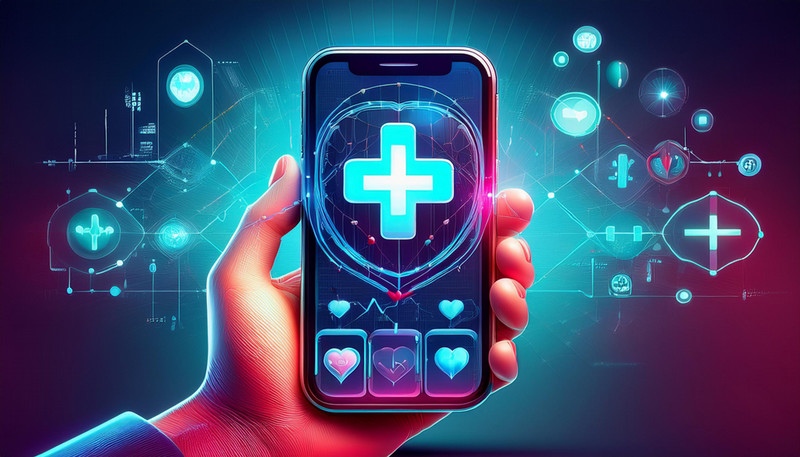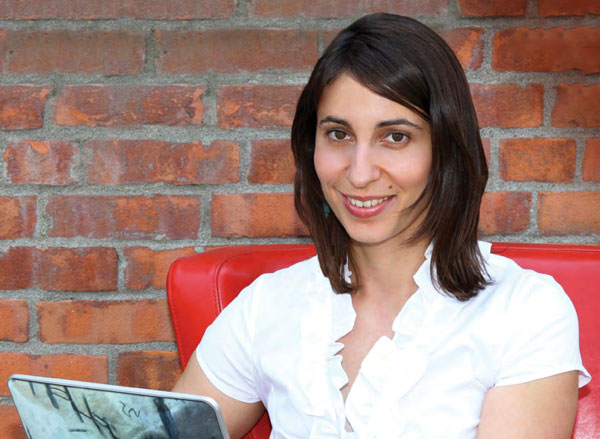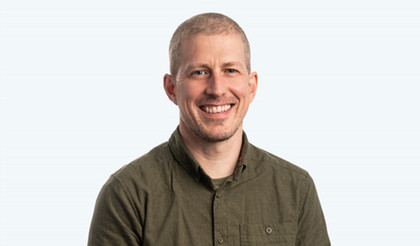How UNB alumni are liberating health data in New Brunswick
Author: Kelly Anderson
Posted on Sep 20, 2024
Category: UNB Fredericton , Inspiring Stories , Computer Science

In 2018, the Government of New Brunswick’s Department of Health set a goal of improving access to digital health services in an effort to transform the way healthcare is delivered in the province. A key part of this commitment was giving patients and families access to their health information, allowing them to better manage their health. What they didn’t anticipate was that a global pandemic would rapidly advance their efforts and push forward an evolution of their plans. The result was that a quickly developed COVID-19 solution has now become MyHealthNB, a healthcare “digital front door” that provides citizens up-to-date personal health information such as lab results, medications, imaging reports and immunization records.
 For Iuli Popescu (BCS’01, MCS’04), who led the process as director of MyHealthNB and Community e-Health, the platform has transformed the way we think about citizen-centric service delivery. “Unlocking the data adds value for both clinicians and citizens,” she explains. “It’s one of the keys to equitable access to care for all, enabling them to play a more active role in their health journey.”
For Iuli Popescu (BCS’01, MCS’04), who led the process as director of MyHealthNB and Community e-Health, the platform has transformed the way we think about citizen-centric service delivery. “Unlocking the data adds value for both clinicians and citizens,” she explains. “It’s one of the keys to equitable access to care for all, enabling them to play a more active role in their health journey.”
Of course, Iuli wasn’t working on this project alone. Many UNB Computer Science graduates, such as Heather MacIsaac (BCS’96) and Dan Fleet (BCS’95, MCS’97), played instrumental roles in the success of MyHealthNB.
The province awarded the contract for the Gateway-as-a-Service (GaaS) project to New Brunswick technology company VeroSource Solutions, led by Mark McAllister (BCS’01, WMI’11). GaaS leverages VeroSource’s VS Gateway solution to provide the foundational infrastructure for MyHealthNB.
 Mark and his team had been at the forefront of the digital health revolution since 2014, providing healthcare solutions to jurisdictions across the country. They were now asked to unlock data services for healthcare in New Brunswick. Mark remembers the excitement of being awarded the project, “We were tasked with creating a connected system that would ultimately provide better healthcare and enable citizens to be in control of their health. It aligned well with our goal of empowering clinicians and patients so that patient outcomes can improve.”
Mark and his team had been at the forefront of the digital health revolution since 2014, providing healthcare solutions to jurisdictions across the country. They were now asked to unlock data services for healthcare in New Brunswick. Mark remembers the excitement of being awarded the project, “We were tasked with creating a connected system that would ultimately provide better healthcare and enable citizens to be in control of their health. It aligned well with our goal of empowering clinicians and patients so that patient outcomes can improve.”
The journey to MyHealthNB
VeroSource provided the GaaS infrastructure and MyHealth solutions, but Iuli says the pandemic advanced the larger data project and vision by ten years. “In technology, we often struggle with adoption—getting people to actually use it. Yet, within a year during the pandemic, we had half the province using MyHealthNB because the value was clear. This was a significant achievement. Patient empowerment is essential; it is key to transforming our healthcare system. By giving patients access to their records, we enable them to take an active role in their health journey.”
Iuli says that they rode the momentum of that early success of sharing COVID-19 test results and immunization records with patients and have continued adding to the platform so that citizens have more access to their own information. In 2023, a portal was added to allow patients to see their own lab results, medications, immunization and diagnostic imaging reports. Even more recently, Patient Summary functionality was added that allows users to securely share their health records, at their discretion, with a new provider or when travelling across Canada or internationally. And Iuli is now working on a project to modernize electronic medical records used in physician offices. “This will further contribute to creating a connected system, and ensuring patients and providers have access to the right information, at the right time. The right infrastructure can help bring patients into the circle of care and be a big part of the solution,” she remarks.
UNB Computer Science connection
It's interesting to note that Iuli and Mark studied computer science together at the University of New Brunswick. “There are so many computer science alumni from around our time at UNB that have been doing great work, including in healthcare,” Iuli says.
Iuli came to UNB from Romania in 1996 speaking no English, on an invite from a family member who lived in Fredericton. “I was young and had no fear,” she laughs. “I chose the computer science program because of the co-op option, to help pay my way through school and learn something new. I liked that it was applied science and problem-solving.” Her first co-op term was with a health informatics software company in Prince Edward Island. “That’s when I fell in love with healthcare and the impact I could make.”
She continued studying for a master’s degree in computer science at UNB and was then hired by CGI in Fredericton as a solutions architect working in government services. “I was eventually given a contract with New Brunswick’s Department of Health, and I’ve been lingering there in various roles ever since. I moved directly into the department to make an even bigger impact from the inside.”
Mark grew up in Fredericton and followed advice from his uncle, computer science professor Andrew McAllister (MCS’83), to enroll in the co-op program. “I wasn’t a computer guy and didn’t know much about it going in, but I loved working in the real world through co-op placements.” When Mark graduated, he (like many of his classmates) was hired by Nortel and moved to Ottawa. But when the company imploded, Mark moved home to take up consulting work, eventually also being hired by CGI. “Iuli and I worked together on projects, and it was an interesting learning experience to see behind-the-curtains of healthcare systems. Even as we built solutions, I saw the gaps in on-the-ground healthcare. There was money being spent and yet nothing was really improving on the front lines. I eventually quit to start a company that would try to make a real difference.”
The VeroSource evolution
VeroSource Solutions was founded by a group of peer consultants, and Mark soon took the role of CEO. “Our first product was an app that would share information in real time on emergency room wait times. Unfortunately, we couldn’t make money with it, and there is no mission without margins. So, we expanded to the professional services side of the business.” VeroSource won work with Health Canada as well as the Healthy Seniors Pilot Project in New Brunswick and an app to help diabetic patients. “We became known for patient-focused healthcare, and that was just when the pandemic hit. We were hired by the Province to help provide on-demand access to COVID-19 test results and vaccination records. The evolution of that, to the bigger vision behind MyHealthNB, propelled us into the world we are in now.”
The world Mark is referring to is VeroSource being acquired by HEALWELL AI for $24.5 million in 2024. The company has remained as part of the global healthcare technology company focused on AI and data science for preventative care and early disease detection. “VeroSource’s products will significantly benefit from HEALWELL’s powerful AI-powered disease detection and patient identification capabilities. This was a strategic move: by being part of a larger company that aligns with our own mission, we can still maintain who we are and level up. We can make an even bigger impact, both here in New Brunswick and beyond.”
Both Mark and Iuli confirm that healthcare is a challenging field with complex problems that are not easily solved. But they also agree that digital progress can empower patients and take the burden off clinicians, which can improve patient outcomes and prompt preventative care. “It’s an important step in solving our systemic healthcare challenges.”
For her part, Iuli feels good about the progress made so far. “The digital health system is a complex web of technology, patient care, clinicians, and regulations, where people's lives are at stake, adding to the complexity. I’m proud of the role I’ve played in navigating these challenges and improving the system in even a small way, though there’s always more room to grow. Every small contribution feels meaningful, knowing it can make a real difference in someone’s life.”
Mark agrees. “It feels like we’re making a difference. People here work in healthcare technology because it does make an impact. There is still a lot to do, but it feels great to be part of the improvement.”